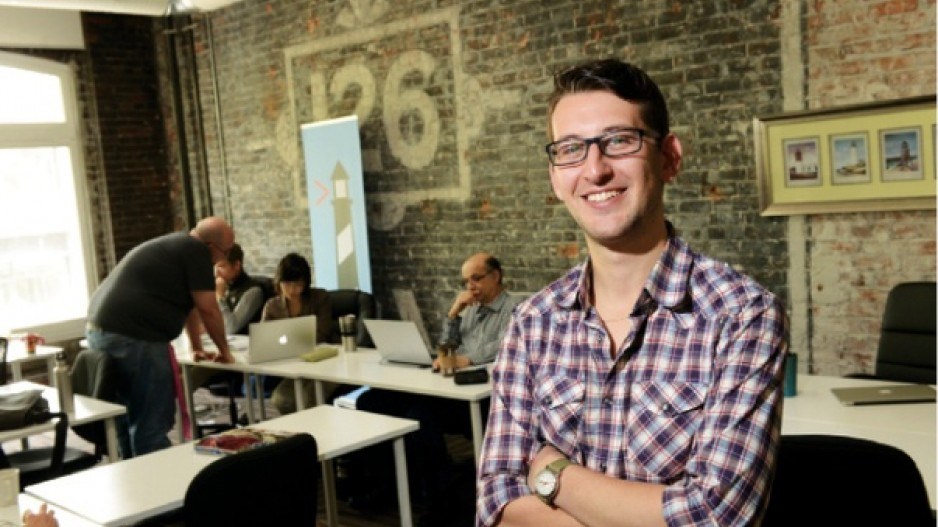Even though Melody Ma loved her job as a product manager at Moneris Solutions, she was constantly asking herself how she could translate her own vision into a product clients could use.
She had been on the business side of the software world for years but didn’t have the coding skills needed to become a developer.
A year ago Ma’s curiosity about the other side of the business spurred her to enrol in Vancouver-based Lighthouse Labs, a coding school that offers multiweek boot camps.
“As I was going through the boot camp I kept thinking to myself, ‘How come it took me over a decade from when I graduated from high school to realize that I can code? It’s not that hard, it’s a lot of fun and it’s very empowering,’” said the 25-year-old, who graduated from high school three years earlier than her peers.
She made a New Year’s resolution in January not to let other young people wait that long to embrace their inner coder.
So Ma organized Codecreate in recognition of the Hour of Code, a global event running December 7-13 that introduces novices to the basics of computer science. The free December 5 Codecreate class was B.C.’s largest coding event aimed at youths, according to organizers.
With funding from the B.C. government through the Computer Using Educators of BC arm of the BC Teachers’ Federation, 400 young people aged eight to 18 sat down simultaneously in Vancouver, Victoria, Kelowna and Prince George to absorb as many basic skills as possible.
“We use technology every day, and it’s no longer acceptable to just use it [without] also really understand[ing] what is going on,” Ma said. “And [with] coding, of course, you’re actually creating the technology. Now you’re getting deep into knowing how it operates.”
Lighthouse Labs donated its facilities in Vancouver as well as its own curriculum for Codecreate, although the lessons were amended to appeal to the younger audience by letting them build a game using basic code.
Meanwhile, other introductory coding events have been gaining traction across Vancouver. More than 2,000 people registered in January for the 500 seats available at the HTML500’s free daylong camp.
In 2014, non-profit foundation The Next Big Thing hosted a summer coding camp at Hootsuite’s headquarters during the same month that the Be Like Ada camp near downtown introduced teen girls to coding.
According to Course Report’s 2015 Bootcamp Market Size study, the coding boot camps throughout North America are expected to churn out 16,056 grads this year compared with 6,740 in 2014.
The six Canadian boot camps included in the report are expected to nearly double their number of graduates, from 480 students last year to 927 by the end of 2015.
But Lighthouse Labs co-founder Jeremy Shaki said these boot camps aren’t only for people looking to change career paths.
Rather, over the past two years since Lighthouse Labs’ founding, he’s witnessed how interest in coding has grown among workers looking to upgrade their skill sets within their current professions.
“What you’d find if you knew how to code really well is you’d be able to build tools that are specifically made for the job that you need done,” he said. “We haven’t really hit that age yet where people feel they can customize their own tools to make their world a lot easier and actually work for the jobs that they’re doing.”
But other jurisdictions are pulling ahead of B.C. when it comes to developing those skills at a young age.
In September, Australia’s former federal education minister announced the country would introduce coding into the national education curriculum beginning with students in Grade 5.
A year prior, the U.K. introduced computing into its own national curriculum with coding included as one of the main components.
And back at home in Canada, the Nova Scotia government announced it would introduce coding into its school curriculum next year.
Ma said there is a risk the West Coast workforce could be at a competitive disadvantage if future generations aren’t learning to code at an earlier age.
“People recognize that this is an area that we do need to bring up our skill sets on, especially if we didn’t get exposed to this during our education,” said Ma, who now works as web developer on contract with Mountain Equipment Co-op.
@reporton



